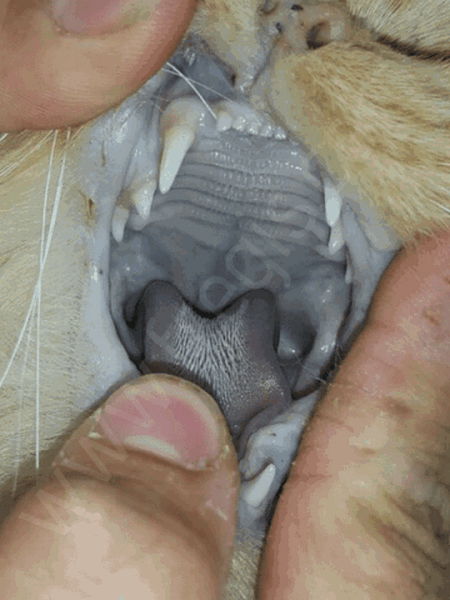Can you give cats paracetamol?
Paracetamol (acetaminophen) is found in almost everyone’s medicine cabinet and is widely used for pain and fever relief. However, paracetamol is extremely toxic to cats. To avoid a tragic accident, you should never administer paracetamol (or any human medication) to your cat and always keep it well out of paws’ reach. If your cat swallows paracetamol, take them to the vet immediately.
Brief summary
- Paracetamol is highly toxic to cats, with no safe amount, and can cause severe blood and liver disorders
- Symptoms include discoloured gums, breathing difficulty, rapid heart rate, lethargy, and jaundice
- Urgent treatment is vital and may involve induced vomiting, activated charcoal, and supportive care
- Prognosis depends on prompt treatment — delays can lead to coma and death within 24-48 hours
Why is paracetamol so toxic to cats?
Cats are particularly sensitive to paracetamol. They lack the specific enzymes to metabolise it safely, leading to a buildup of toxic products which damage the blood cells and liver. When cats ingest paracetamol, it can lead to a type of anaemia called Heinz body anaemia, a dangerous condition where red blood cells are irreversibly damaged. It can also cause methemoglobinemia (a condition where the blood can't carry oxygen effectively) and even liver failure.
Read more: How to protect your cat from antifreeze poisoning
How much paracetamol is poisonous to cats?
The toxic dose in cats is extremely low, which in practical terms, means that no amount of paracetamol is ever safe for cats.
What are the symptoms of paracetamol poisoning in cats?
Symptoms of toxicity can occur within a few hours of your cat eating paracetamol and usually between 6-24 hours after ingestion. The main signs of paracetamol poisoning in cats are:
- Blue to brown discolouration of gums and tongue (cyanosis)
- Difficulty breathing (dyspnoea) - this may be seen as panting, fast and heavy breaths, or open-mouth breathing
- Fast heart rate (tachycardia)
- Rapid breathing (tachypnoea)
- Loss of appetite (anorexia)
- Tiredness or lack of energy (lethargy)
- Abdominal pain
- Diarrhoea
- Vomiting, possibly with blood (haematemesis)
- Black, tarry stools (melaena)
- Yellowing of the skin or eyes (jaundice)
- Swelling of the face, neck, chest, and limbs
- Dark brown urine

Recognising the dangers: blue to brown gums and tongue in cats, known as cyanosis, is a sign of paracetamol poisoning ©fregis.com
Treatment for paracetamol poisoning in cats
If your cat swallows paracetamol, seek veterinary treatment as soon as possible. Take the medication packaging with you to the vet, and tell them as accurately as possible when the paracetamol was eaten.
If your cat has ingested paracetamol within an hour or so of reaching a vet practice, your vet will likely induce sickness to remove any undigested paracetamol from the stomach before it has time to take effect. They may also administer activated charcoal orally, which is effective at absorbing toxic substances already in the cat’s system.
Your vet will probably perform a blood test to assess how much damage has been done to your cat’s blood cells and liver. These tests can help them decide on which treatments to prioritise, including providing fluids through a vein (IV fluids), blood transfusions, and providing extra oxygen. A medication called acetylcysteine may be given, which helps prevent further production of toxins.
Read more: Can cats catch colds?
What’s the prognosis for cats who swallow paracetamol?
Paracetamol toxicity in cats is a genuine emergency, and is often fatal without prompt appropriate treatment. The prognosis depends on how much has been ingested and how quickly treatment is started. Without treatment, cats will rapidly progress into coma, with death typically occurring within 24 to 48 hours. Survival beyond the initial three days improves the prognosis as long as the cat receives ongoing veterinary care and monitoring.
Are there any studies into paracetamol toxicity in cats?
The National Library of Medicine released a study regarding feline drug metabolism and disposition. This study explained that cats are particularly sensitive to paracetamol compared to humans and dogs. It was found that this is mainly because cats lack certain enzymes to break down the drug safely in their bodies. As a result, cats can suffer from serious blood disorders and liver damage, even from small amounts of paracetamol.
A study in the Biochemical Pharmacology Journal delved into why cats can't process paracetamol nd investigated why cats are particularly vulnerable to paracetamol poisoning. The focus is on how cats’ livers process paracetamol. Normally, an enzyme helps break down paracetamol safely. The researchers found that cats have much lower levels of a key type of this enzyme compared to dogs, humans, and other animals. In simple terms, cats' livers can't handle paracetamol as effectively as other animals' livers, making the drug dangerous for them.
Another study published in the Toxicology and Applied Pharmacology Journal, looked into the toxicity of single doses of paracetamol in dogs and cats, and examined how dogs and cats process different doses of paracetamol. Both animals were given low, medium, and high doses of paracetamol in the experiment. The researchers found that dogs showed liver damage in a specific region, whereas cats had more widespread liver damage. These results suggest that cats are more at risk from paracetamol poisoning due to their limited ability to process the drug.
Read more: Do cats get cold?
Need more advice on the question of can you give cats paracetamol?
If you need further advice, get in touch with your vet – they’ll always be happy to help. Find your nearest vet using our find a vet page, or speak to a vet online using our video vets service.
Remember, if your cat needs pain relief, you should consult a vet for cat-safe medication.


